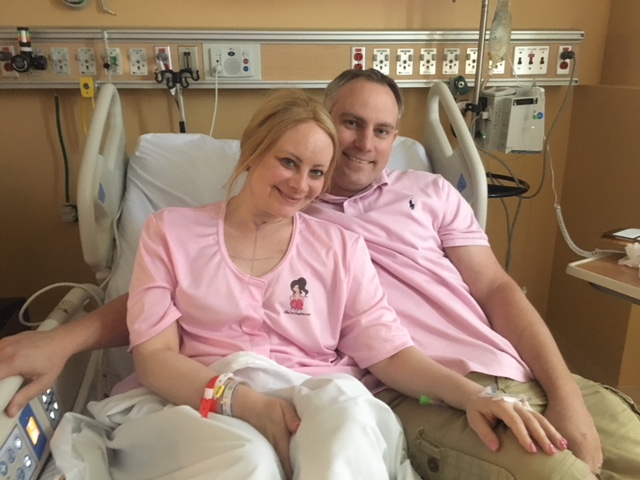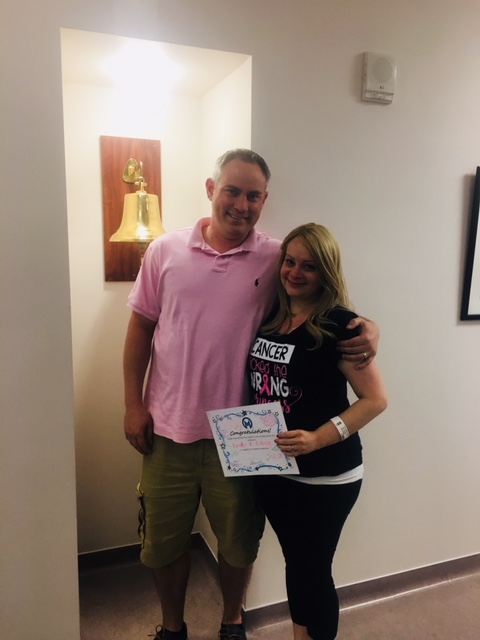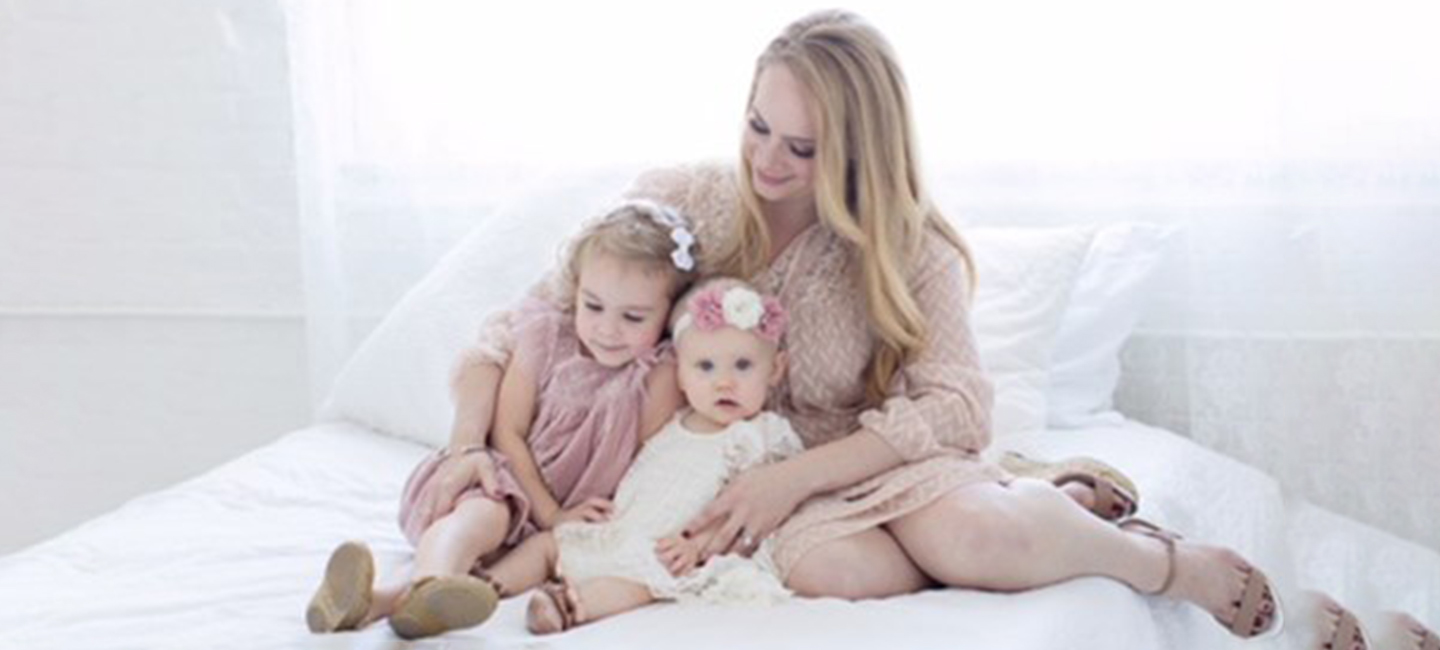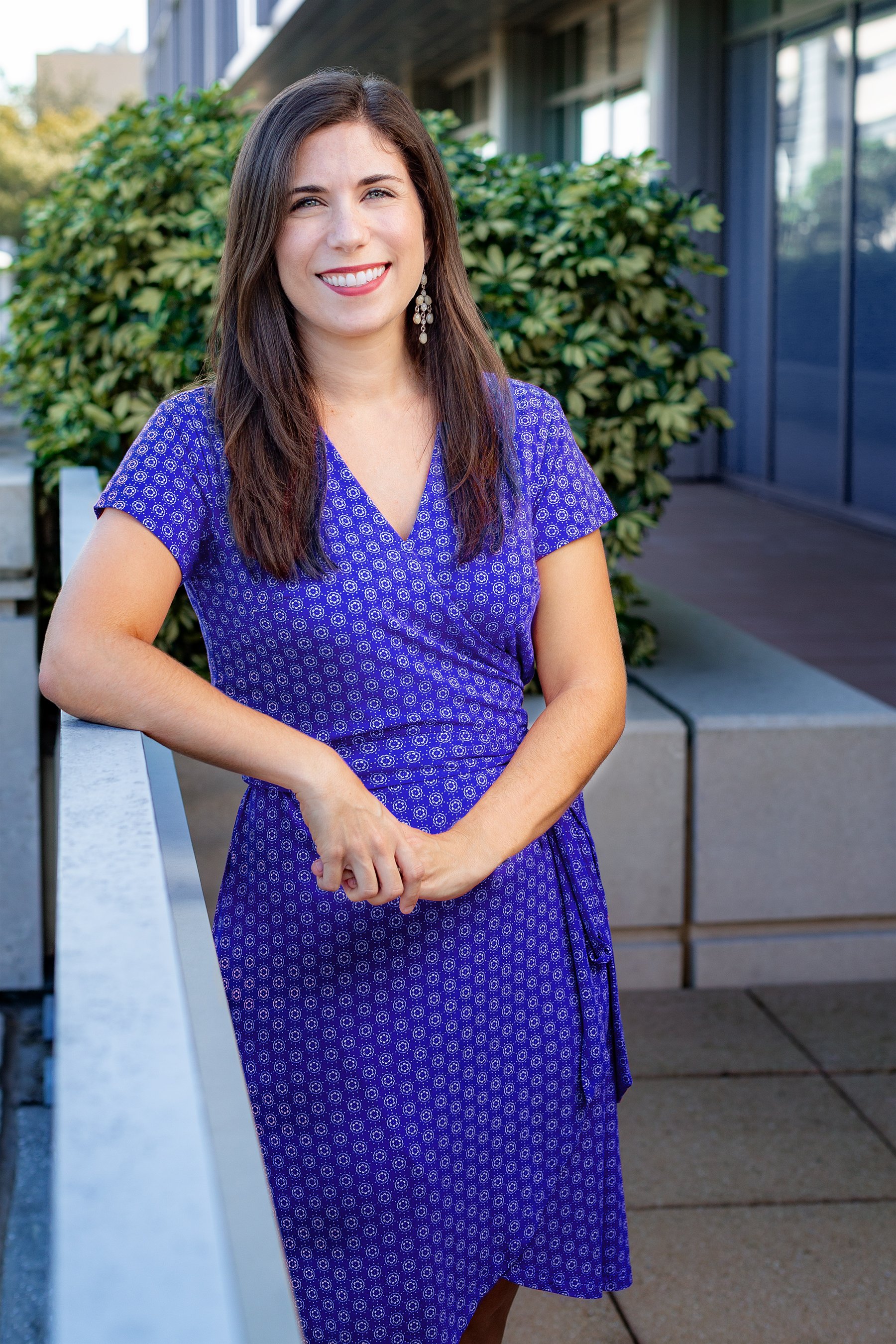Moffitt Speech Pathologist Wants to Help Others after Own Breast Cancer Battle
After discovering she was a carrier of the BRCA2 mutation in 2008, Brooke DuLaney believed she was doing all the right things to manage her risk of breast cancer.
As a speech pathologist at Moffitt Cancer Center, she was surrounded by a wealth of resources and knowledge. She was referred to Moffitt’s breast genetic clinic and visited twice a year for diagnostic imaging. DuLaney was told that by age 35, she’d need to think seriously about undergoing prophylactic surgery.
Cancer found her in fall 2017, just a couple years shy of her 35th birthday. Diagnosed with stage 2A invasive ductal triple negative breast cancer, the 33-year-old mother of two was in complete shock. “I’d worked with cancer patients my whole career… but you can never really be prepared for your own diagnosis.” For nearly the past 10 years, she had been diligent about preventing cancer, “So how could I still get it?” she says.
DuLaney had just given birth to her second daughter in March of that year. She went in for her regular screening in May but skipped diagnostic imaging because she was breastfeeding at the time. A physical breast exam raised no suspicion.
In August she saw her obstetrician and again everything felt normal. “That October, my oldest daughter Madison, who was about to turn 3, was jumping on me and landed on my chest,” she said. “That’s when I felt the lump.”
DuLaney’s role quickly transitioned from a Moffitt clinician to a Moffitt patient. Working at the cancer center, she’d sometimes see the worst of the worst and says it was hard for her to separate these fears with her own diagnosis. “Those fears unfortunately overtook me,” she says.
Through the support of her colleagues and the friendships she forged working at the cancer center, DuLaney was able to see the light at the end of the tunnel. “It took me a while, but my friends who are colleagues helped set me straight and get the facts about my diagnosis and treatment plan.”

DuLaney in recovery after surgery.
DuLaney underwent five months of chemotherapy and a double mastectomy. Given the increased risk of ovarian cancer with the BRCA2 gene, she also elected to undergo a hysterectomy and an oophorectomy. She credits Drs. Loretta Loftus and Christine Laronga and their nurses for saving her life – but her two girls Madison and Piper helped her with the emotional battle. “Their unconditional love and endless smiles got me through it, no matter how hard or horrible some days were.”
The physical and mental challenges of her treatment forced DuLaney to take a backseat. The weakness and other side effects made everyday tasks like walking upstairs or doing laundry nearly impossible. She leaned on her parents, mother-in-law and husband for support. When you say your wedding vows, she says, you promise to be there through sickness and in health. “Those vows were tested and my husband really stepped up to the plate. He loved me when I was bald and at my worst.”
With a compromised immune system from the chemo, DuLaney was also forced to stop working – she could no longer be around other sick patients. She missed being able to work, but knows her personal bout with cancer will make her a better person and clinician. “I’m more compassionate and more understanding,” she says. “Having cancer is hard. When someone tells you ‘they understand,’ I really ‘understand.’ ”
DuLaney finished her last round of chemo in May 2018 and had pathological complete response. “That means I have no active cancer in my body,” she says. “If that’s still the case in five years, I will be cancer free for good.”

DuLaney and her husband after she rang the bell, signifying the end of her treatment.
Her goal now is to share her story to spread awareness and educate other young moms.
In most cases annual screening mammography is not recommended until age 40 – but she wants women to know it can still sneak up before then. “If they read my story and check themselves [through a breast self-exam], then I know that sharing my story was for a good reason.” She also wants them to know that it can happen to anyone, not just those who carry the BRCA gene. "Breast cancer does not discriminate," DuLaney adds.
DuLaney has also created a local support group – MOST Warriors (Moms of South Tampa) – to assist other young moms throughout their breast cancer battle.



